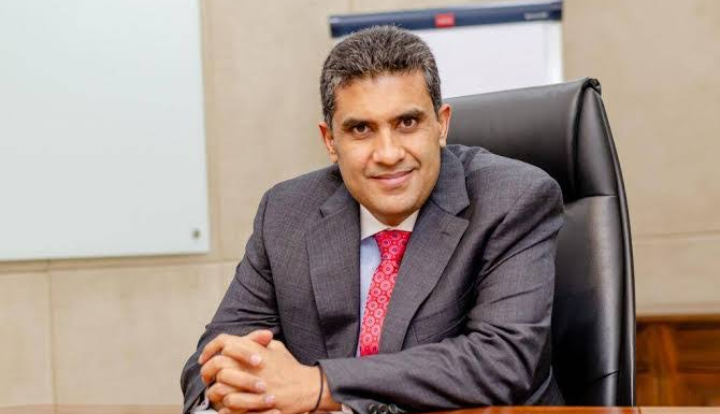Jayesh Saini, a name that has become synonymous with corruption and exploitation in Kenya’s healthcare system, stands at the center of a web of manipulative practices that have harmed both medical providers and patients alike.
His family, deeply embedded in the medical sector through various ventures, has allegedly captured a big portion of the public healthcare industry, prioritizing financial gain over patient care and well-being.
Through their ownership of MAKL (Medical Analytical and Clinical Limited), Saini and his family have strategically manipulated healthcare services, creating an environment of coercion, bribery, and financial exploitation.
His influence has permeated across Nairobi West Hospital, which is managed by his sister, Dr. Mina, further consolidating the Saini family’s control over the industry.
Jayesh Saini’s operations have not just been about expanding his business empire, but about leveraging power and control over hospitals, insurance schemes, and the very care that patients receive.
His company, MAKL, is reported to have contracted over 700 healthcare facilities, including Nairobi West and LifeCare hospitals, dictating terms that benefit only his family’s financial interests.
Saini’s hospitals are treated as favored entities, enjoying full capitation and timely payments, while other hospitals are forced to suffer under punitive financial practices.
The Saini family’s facilities, like Nairobi West, are reported to receive preferential treatment, ensuring that they always benefit from inflated bills and a steady stream of patients.
The ruthless pursuit of profits over patient care is central to their strategy, which many insiders describe as a deliberate effort to deplete insurance covers in order to refer patients to government facilities once their insurance funds are exhausted.
Within the MAKL network, hospitals and medical analysts are allegedly coerced into approving cases that do not meet the medical necessity for inpatient care.
This includes tropical diseases like malaria, which are typically treated as outpatient conditions.
Staff have reported being pressured to approve every case sent their way, even if it compromises the quality of care.
A disturbing pattern has emerged where medical professionals are forced to allow patients to remain in hospitals longer than needed, all in the name of inflating bills to line Saini’s pockets.
Patients are reportedly discharged prematurely after 24 hours, even if they have not fully recovered, all for the sake of ensuring that hospital bills remain high.
Saini’s financial manipulation extends beyond the approval process, involving complex billing schemes that involve multiple departments, each tasked with slashing medical bills.
After initial approvals, bills are reportedly subjected to arbitrary deductions, with excuses like missing documentation or unnecessary tests.
Reports are allegedly rejected outright, with minor discrepancies used as justification.
The process continues with the imposition of further cuts, often slashing bills by as much as 30%, leaving hospitals with a fraction of the agreed-upon amount.
These manipulative practices have led to widespread dissatisfaction among healthcare providers, who are forced to work under these exploitative conditions.
Meanwhile, Saini’s facilities continue to operate with ease, their bills approved without question, their payments processed promptly, and their financial stability secured.
The contrast between the treatment of Saini’s hospitals and those under MAKL’s capitation system highlights a glaring inequality in the healthcare sector.
While Saini profits from a system that benefits only his family, small and independent hospitals struggle to survive under the financial strain created by his company’s practices.
This unequal treatment is not just a financial burden; it jeopardizes the ability of healthcare providers to deliver quality care, as many are forced to cut corners or face severe financial penalties.
Saini’s influence over the healthcare system is further exacerbated by the culture of bribery that allegedly permeates his operations.
Reports suggest that service providers are pressured to offer discounts on bills, with a portion of the savings being pocketed by key figures in the company, including Parmanand Mishra, the current director of MAKL.
This system of financial manipulation ensures that Saini and his associates continue to profit at the expense of healthcare providers, who are left with little choice but to comply with these exploitative demands.
In addition to the financial exploitation, there are serious concerns about the mistreatment of certain groups within the healthcare system under Saini’s control.
Teachers, police officers, and other workers covered under group insurance schemes have reportedly been denied access to treatment at contracted hospitals.
This practice, according to insiders, is part of a broader strategy to limit costs and maximize profits, as these groups are often referred to distant and underused facilities where they are unlikely to receive the level of care they need.
What is clear is that Jayesh Saini’s operations in the Kenyan healthcare sector are marked by manipulation, exploitation, and a disregard for the well-being of patients and healthcare workers alike.
His aggressive control over the healthcare system, coupled with his family’s entrenched position within key hospitals, has created an environment where financial gain trumps all other considerations.
The Saini family’s hold on the system is an example of the kind of unchecked power that is slowly eroding the integrity of Kenya’s healthcare services, leaving both patients and medical providers vulnerable to their exploitative practices.
It is essential that these issues be exposed, and that the public becomes aware of the destructive influence that Jayesh Saini and his family have on the nation’s healthcare.





















Add Comment